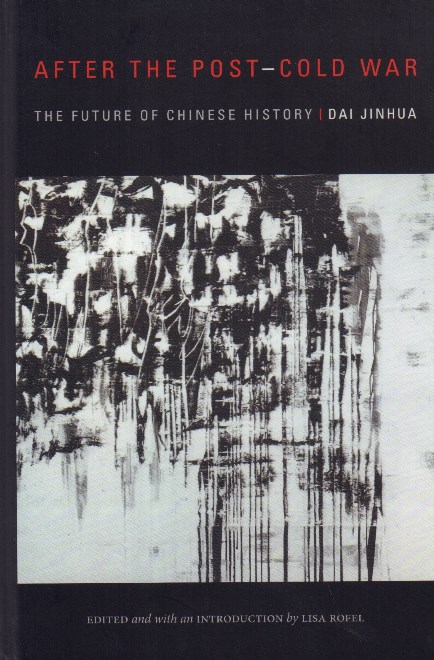After the Post-Cold War : the future of Chinese history / Dai Jinhua ; edited and with an introduction by Lisa Rofel.
Yer Numarası
A.IX/9827
ISBN
9781478000389 (hardcover: alk. paper)
9781478000518 (pbk.: alk. paper)
9781478008408 (ebook)
9781478000518 (pbk.: alk. paper)
9781478008408 (ebook)
Dil Kodu
İngilizce
Kütüphane
Türk Tarih Kurumu Kütüphanesi
Yazar
Eser Adının Farklı Biçimi
The future of Chinese history
Yayın Bilgisi
Durham ; London : Duke University Press, 2018.
Fiziksel Niteleme
xxiv, 199 sayfa : resim ; 23 cm.
Dizi
Sinotheory
Genel Not
İndeks s. [191]-199.
Bibliyografi, vb. Notu
Bibliyografya s. [183]-188.
Bibliyografik notlar s. [167]-179.
Bibliyografik notlar s. [167]-179.
İçindekiler Notu
Introduction / translated by Jie Li -- PART I. TRAUMA, EVACUATED MEMORIES, AND INVERTED HISTORIES. I want to be human : a story of China and the human / translated by Shuang Shen -- Hero and the invisible tianxia / translated by Yajun Mo -- PART II. CLASS, STILL LIVES, AND MASCULINITY. Temporality, nature morte, and the filmmaker : a reconsideration of still life / translated by Lennet Daigle -- The piano in a factory : class, in the name of the father / translated by Jie Li -- PART III. THE SPY GENRE. The spy-film legacy : a preliminary cultural analysis of the spy film / translated by Christopher Connery -- In vogue : politics and the nation-state in lust, caution and the lust, caution phenomenon in China / translated by Erebus Wong and Lisa Rofel -- Finale : history, memory, and the politics of representation / translated by Rebecca Karl -- Interview with Dai Jinhua, July 2014 / Lisa Rofel.
Özet, vb.
“In After the Post-Cold War eminent Chinese cultural critic Dai Jinhua interrogates history, memory, and the future of China as a global economic power in relation to its socialist past, profoundly shaped by the Cold War. Drawing on Marxism, post-structuralism, psychoanalysis, and feminist theory, Dai examines recent Chinese films that erase the country's socialist history to show how such erasure resignifies socialism's past as failure and thus forecloses the imagining of a future beyond that of globalized capitalism. She outlines the tension between China's embrace of the free market and a regime dependent on a socialist imprimatur. She also offers a genealogy of China's transformation from a source of revolutionary power into a fountainhead of globalized modernity. This narrative, Dai contends, leaves little hope of moving from the capitalist degradation of the present into a radical future that might offer a more socially just world.” -- Arka kapak.
Emeği Geçenler
Rofel, Lisa, 1953- editör, girişi yazan.


